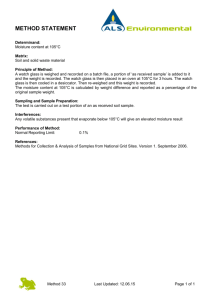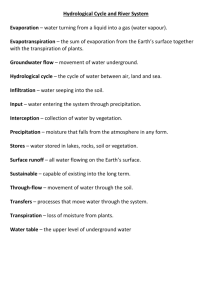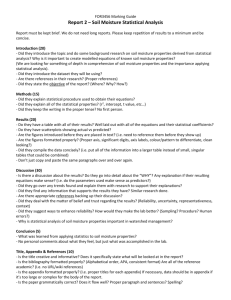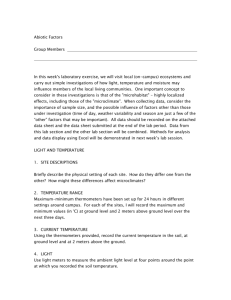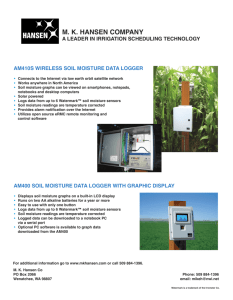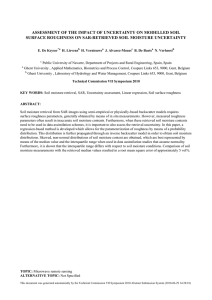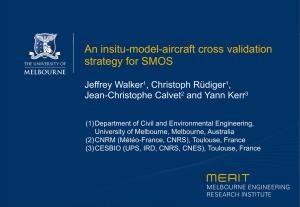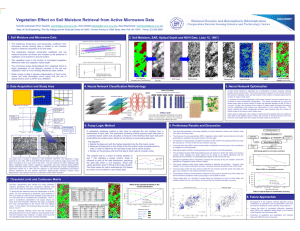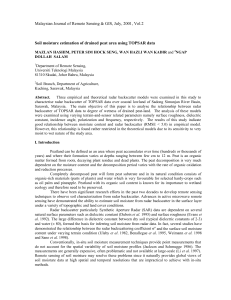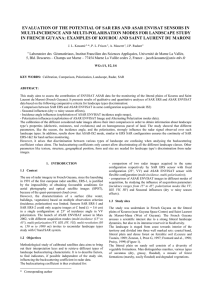OPERATIONAL SOIL MOISTURE FROM SAR SYSTEMS: TOWARDS SENTINEL-1
advertisement
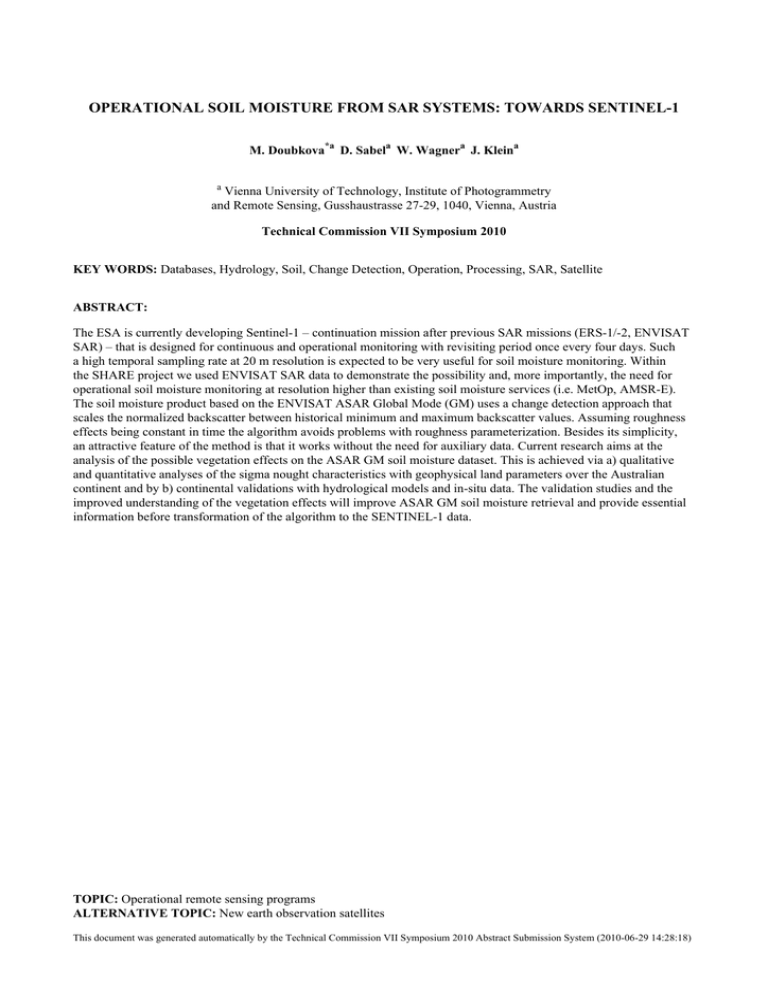
OPERATIONAL SOIL MOISTURE FROM SAR SYSTEMS: TOWARDS SENTINEL-1 M. Doubkova*a D. Sabela W. Wagnera J. Kleina a Vienna University of Technology, Institute of Photogrammetry and Remote Sensing, Gusshaustrasse 27-29, 1040, Vienna, Austria Technical Commission VII Symposium 2010 KEY WORDS: Databases, Hydrology, Soil, Change Detection, Operation, Processing, SAR, Satellite ABSTRACT: The ESA is currently developing Sentinel-1 – continuation mission after previous SAR missions (ERS-1/-2, ENVISAT SAR) – that is designed for continuous and operational monitoring with revisiting period once every four days. Such a high temporal sampling rate at 20 m resolution is expected to be very useful for soil moisture monitoring. Within the SHARE project we used ENVISAT SAR data to demonstrate the possibility and, more importantly, the need for operational soil moisture monitoring at resolution higher than existing soil moisture services (i.e. MetOp, AMSR-E). The soil moisture product based on the ENVISAT ASAR Global Mode (GM) uses a change detection approach that scales the normalized backscatter between historical minimum and maximum backscatter values. Assuming roughness effects being constant in time the algorithm avoids problems with roughness parameterization. Besides its simplicity, an attractive feature of the method is that it works without the need for auxiliary data. Current research aims at the analysis of the possible vegetation effects on the ASAR GM soil moisture dataset. This is achieved via a) qualitative and quantitative analyses of the sigma nought characteristics with geophysical land parameters over the Australian continent and by b) continental validations with hydrological models and in-situ data. The validation studies and the improved understanding of the vegetation effects will improve ASAR GM soil moisture retrieval and provide essential information before transformation of the algorithm to the SENTINEL-1 data. TOPIC: Operational remote sensing programs ALTERNATIVE TOPIC: New earth observation satellites This document was generated automatically by the Technical Commission VII Symposium 2010 Abstract Submission System (2010-06-29 14:28:18)
